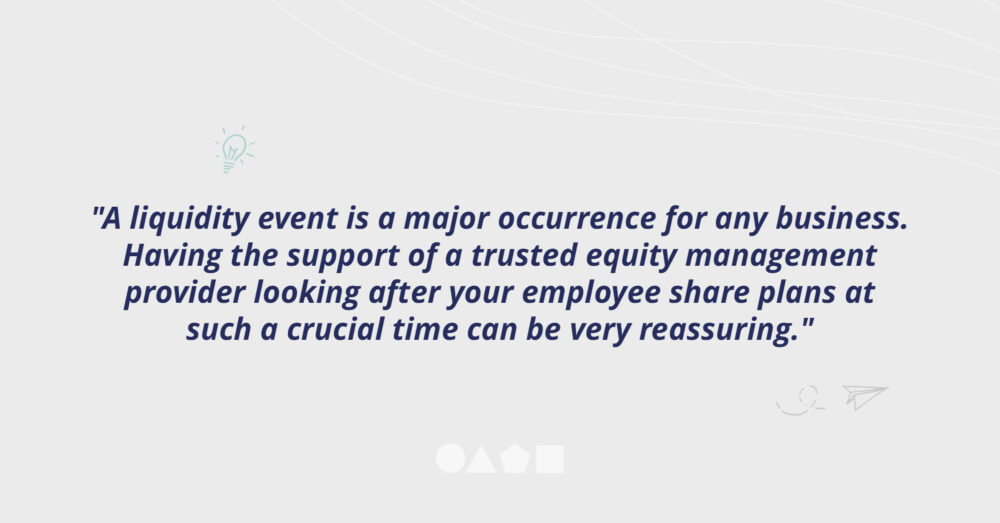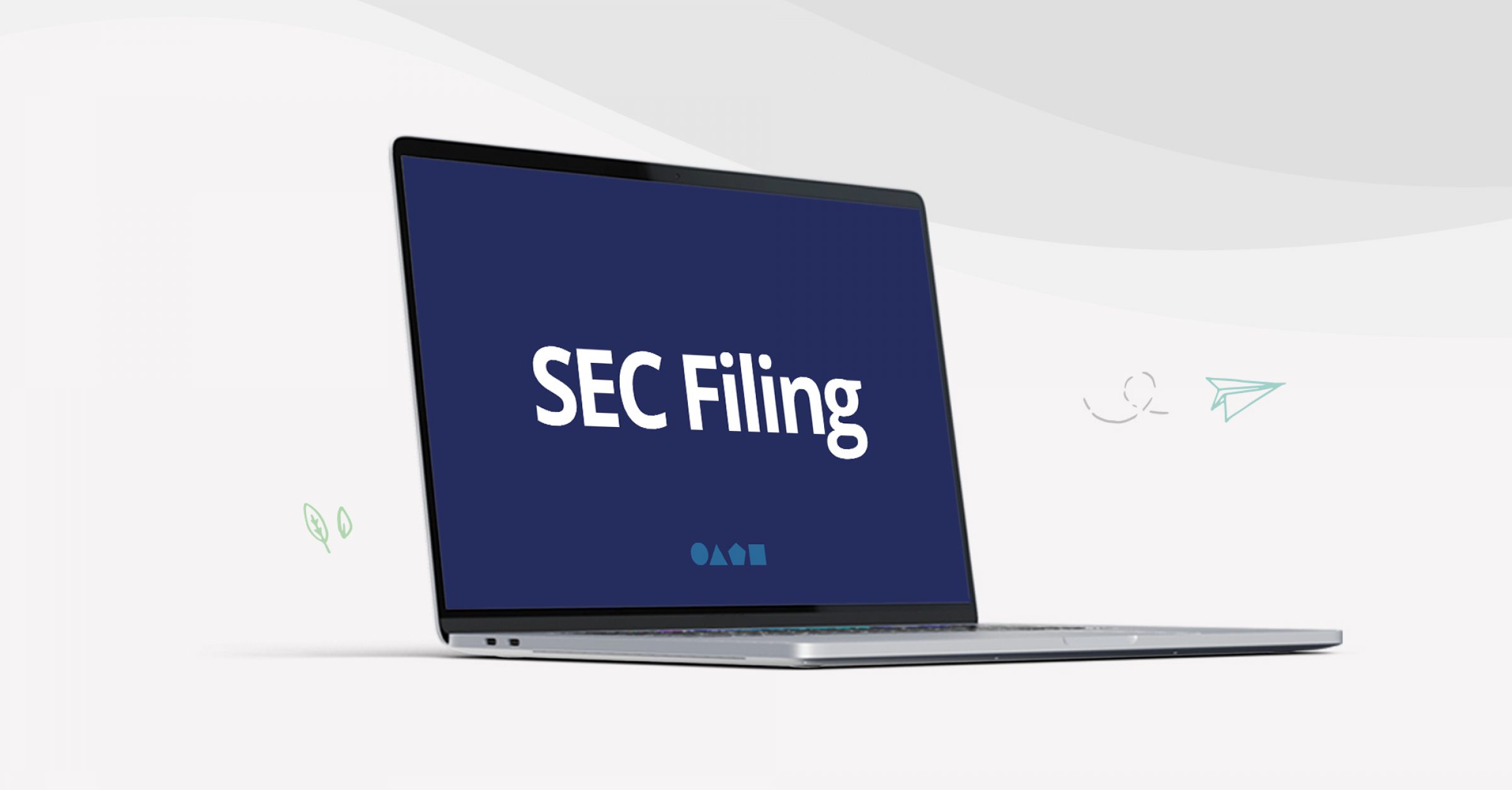In contrast with a public company where shares can typically be sold by the holder at any time of their choosing, private companies only allow for opportunities to sell shares at certain times.
Known as liquidity events these provide founders and early investors the option to cash out some, or all of their ownership shares, letting them realize a portion, or all of the value of their investment and, as the name suggests, turn their illiquid assets into liquid assets.
For some people this will have been the aim all along, whereas for others it will only be one more step on their journey with the company.
While liquidity events can come in a number of different ways it’s worth noting that there is no single, definitive route for companies to follow. It will be a matter of what’s right for each individual company and the event type will depend on their needs, requirements, goals, outlook, attitudes and a range of other factors.
Types of Liquidity Events
Initial Public Offering (IPO) or Going Public: Probably the most well-known type of liquidity event, this is when the company first sells shares or stocks to the public, typically on a public stock exchange such as the New York Stock Exchange or London Stock Exchange. Prior to this shares in the company would not have been made available to the general public.
Direct Public Offering (DPO) or Direct listing: Similar to an IPO in that stocks are sold to investors, but in a DPO the company raises capital directly, rather than using an investment banking firm or broker-dealer to underwrite it. Sometimes referred to as investment crowdfunding the DPO route is often favored by companies or non-profits seeking to raise money from their own communities.
Mergers and Acquisitions (M&A): A transaction whereby the ownership of one company is transferred to or consolidated with that of another business organization or company. These events are often subject to approval by regulators in the jurisdictions where they operate, to ensure they comply with antitrust or competition law.
A Special Purpose Acquisition Company (SPAC) is a publicly traded company that is created specifically for the purpose of acquiring or merging with an existing company. Where companies choose to use the SPAC route investors may find that they are subject to a lockup period.
Merger: The consolidation of two or more business entities into one.
Acquisition: Sometimes referred to as a takeover, this where the assets, share capital or equity interests of one company are taken over by another.
Consolidation or Amalgamation: This occurs when two or more companies combine to form a new enterprise.
Buyout: Similar to an acquisition this occurs where the controlling interest in one company is bought by another.
Tender Offer: Designed to enable stockholders in a private company to sell some or all of their shares either to another investor or back to the company. When the company itself purchases the shares it is referred to as a buyback.
A Clean Cap Table
One thing that any company preparing for a liquidity event will want to have sorted ahead of time is a clean, well-maintained Capitalization ‘Cap’ Table. Since this tracks the ownership of the company it is an essential requirement. The cap table allows potential investors to see the ownership of the company and precise make-up of it.
Some companies, when starting out, will opt for a manual solution to track this information, however as a company grows its cap table will inevitably become more complex. This is where equity compensation software or share plan management software comes in since it allows you to manage large amounts of data and keep complicated information in order.
A liquidity event is a major occurrence for any business. Being prepared and knowing you have the support of a trusted equity management provider looking after your employee share plans at such a crucial time can be very reassuring.

Other things to be aware of:
Can your share plan provider offer continuity of service?
Going from private to public or making any change to the ownership of your company is going to be majorly disruptive. It is worth checking ahead of time if this is something your share plan provider can accommodate? Will they be able to continue providing you a service post the liquidity event or not?
Staff retention:
Start-ups or other smaller companies may not be able to offer potential employees the same wages as larger, more established companies in their industries. As a result they may offer new employees a share in the company as a way to bulk out their rewards package – people will often be familiar with this approach from the tech or online business sectors.
Consider then, following a liquidity event, many staff may receive large pay-outs, which could lead to staff attrition or a brain-drain. Be sure to consider ahead of time how you intend to combat or counteract this.
Taxation:
Different liquidity events will have different tax implications – so get the facts on this straight.
Contact us now
Regardless of whether you are planning on a liquidity event in the near future or have not even considered this fully yet it’s essential that you are prepared.
We provide businesses of all sizes with an all-in-one equity compensation management solution at J.P. Morgan Workplace Solutions. We handle all the equity award administration so you’ve nothing to worry about. Get in touch today to find out how we could assist with equity design and management.
By visiting a third-party site, you may be entering an unsecured website that may have a different privacy policy and security practices from J.P. Morgan standards. J.P. Morgan is not responsible for, and does not control, endorse or guarantee, any aspect of any linked third-party site. J.P. Morgan accepts no direct or consequential losses arising from the use of such sites.
Please Note: This publication contains general information only and J.P. Morgan Workplace Solutions is not, through this article, issuing any advice, be it legal, financial, tax-related, business-related, professional or other. J.P. Morgan Workplace Solutions’ Insights is not a substitute for professional advice and should not be used as such. J.P. Morgan Workplace Solutions does not assume any liability for reliance on the information provided herein.



